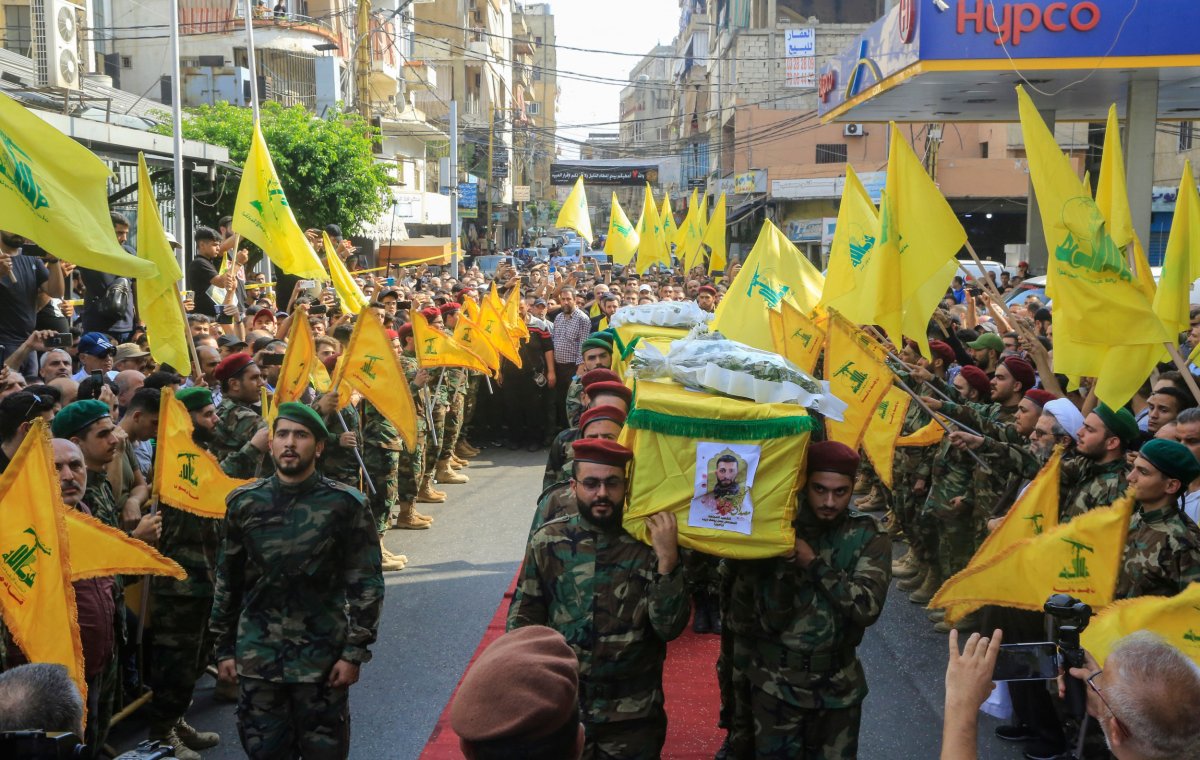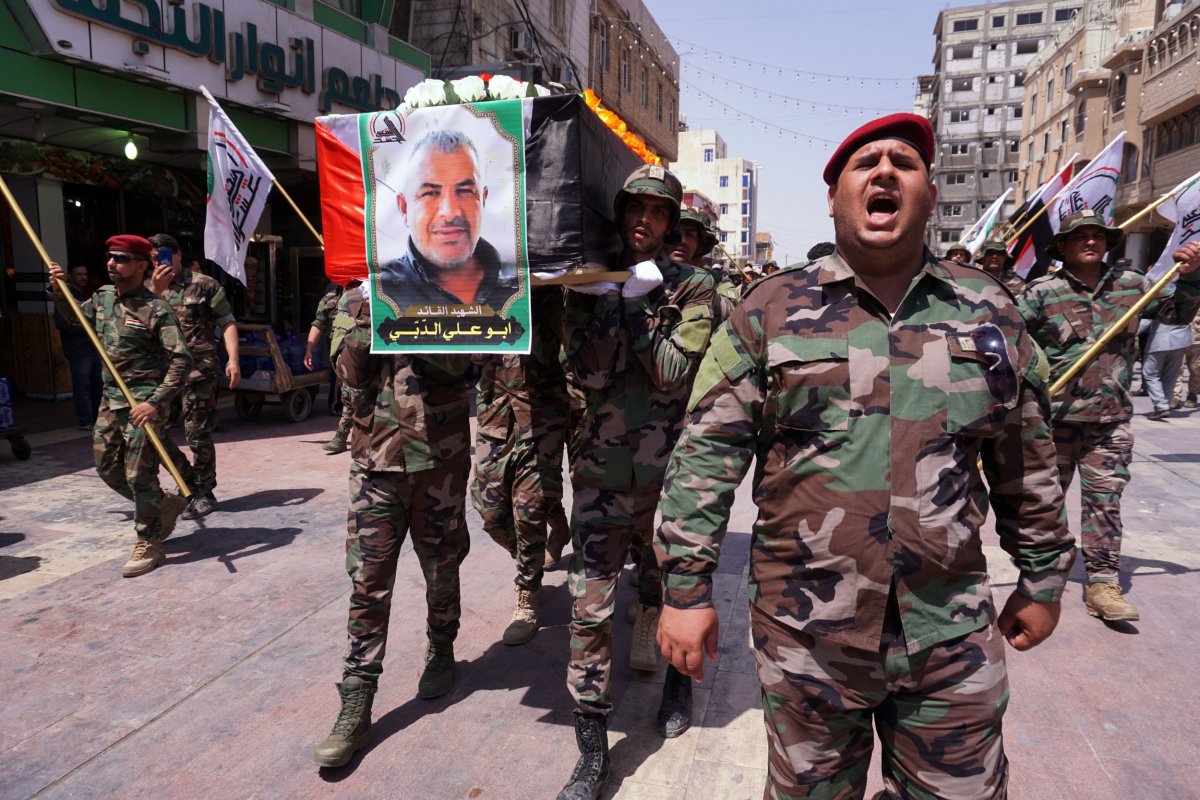Israel has reportedly struck targets in four different countries within the span of two days as it broadened the scope of its extraterritorial activities against allies of Iran.
Israeli forces openly claimed attacks over the weekend in Syria and the Palestinian-administered Gaza Strip and were blamed for two more operations in Lebanon and Iraq. As reports of what occurred across the region emerged, Israeli Prime Minister Benjamin Netanyahu hinted at his country's ongoing efforts abroad, telling a Monday planning meeting that "we will deepen our roots and strike at our enemies."
Israel has often accused Iran of attempting to set up forward bases across the Middle East, where most Arab nations have not formally recognized Israel due to its decades-long territorial dispute with Palestinians and other clashing interests.
Israel has traditionally maintained silence over its international operations, but has increasingly opened up about some of its efforts, especially in Syria, where Secretary of State Mike Pompeo said Sunday he supported "Israel's right to defend itself from threats posed by the Iranian Revolutionary Guard Corps & to take action to prevent imminent attacks against Israeli assets." The top U.S. diplomat said Netanyahu stated "Israel would strike IRGC targets threatening Israel, wherever they are located."

The tweet came a day after Israel's first foreign operation Saturday in the southwestern Syrian village of Aqraba, preventing what Israel's military claimed the following day to be "a pending, large-scale attack of multiple killer drones on Israel." The targets were said to be members of the elite Iranian Revolutionary Guards' Quds Force and members of Lebanon's allied Shiite Muslim Hezbollah movement.
The Syrian Ministry of Defense reported Saturday "an Israeli aggression" coming from the occupied Golan Heights, claiming much of the incoming missiles had been intercepted. Israel's military said Sunday it killed two "Lebanese Shiite militia" operatives, naming them and posting pictures of an alleged trip to Iran, where they were said to have received "drone-operation training."
Also on Sunday, Hezbollah Secretary-General Hassan Nasrallah announced two explosive-laden Israeli drones had fallen over southern Beirut as they attempted to conduct a "suicide mission" in a part of the city his group enjoys support. Meanwhile, in northern Israel, Netanyahu argued it was Iran and Hezbollah that had tried to employ such deadly unmanned weapons, justifying his Syria attack by saying that "if someone rises up to kill you, kill him first."
Hours later, Lebanon's National News Agency reported that Israeli jets struck positions of the nationalist Popular Front for the Liberation of Palestine - General Command in eastern Qusaya. The group, which also has ties to Iran, reportedly responded with anti-aircraft fire in what would be one of the most serious engagements involving the two countries since Hezbollah and Israel fought in 2006.
Lebanese Prime Minister Saad al-Hariri received a call that same day from Pompeo, who "stressed the need to avoid any escalation and to work with all parties concerned to prevent any further deterioration" as Hariri "emphasized Lebanon's commitment to the obligations of international resolutions" and noted "the dangers of continuing Israeli violations" of these resolutions. Lebanese President Michel Aoun met Monday with the U.N. Special Coordinator for Lebanon Jan Kubis, calling Israel's moves in Beirut and Qusaya "a declaration of war."
The statement echoed the words of Iraq's powerful Fateh Alliance, which called separate strikes that killed a militia commander in the border town of Al-Qaim "a declaration of war on Iraq and its people," according to the Associated Press. The statement attributed the strike to Israel and is believed to be the latest in a series of such attacks targeting sites associated with the Popular Mobilization Forces, a mostly Shiite Muslim collective of militias that are integrated with the Iraqi armed forces but host ties to Iran as well.
Speaking Monday to a media outlet affiliated with the paramilitary forces, Iraqi Defense Ministry spokesperson Tahseen al-Khafaji warned Monday that "we will not allow security forces or the Popular Mobilization Forces to be subjected to any aggression," but noted that "investigations are still underway."

Violence also erupted closer to Israel's own disputed borders as unidentified groups fired three rockets into Israel from Gaza, two of which were reportedly intercepted by the Iron Dome defense system. Israel retaliated by launching airstrikes on positions on Hamas, the Palestinian Sunni Islamist group in charge of the territory.
As regional tensions flared, Israeli Coordinator of Government Activities in the Territories Major General Kamil Abu-Rukun issued a warning to Palestinian groups on his Facebook page, warning that "hostile elements near and far, attempting to ignite a war, are dragging you into violence and destroying the stability and security of your home," as quoted by the Jerusalem Post.
He claimed that Palestinian militant group Islamic Jihad "is in the service of Iran, is causing destabilization again and again and harming the security of the area." He added: "You are the ones who will suffer the consequences."
While Israel and Iran have long been at odds, their feud has worsened since the U.S.' decision last year to leave a 2015 nuclear deal and impose a self-styled "maximum pressure" campaign of sanctions against the Islamic Republic. The U.S. has struggled to establish a multinational maritime security group and though Israel has expressed interest, only the United Kingdom, Bahrain and Australia have officially signed on to coalition.
Uncommon Knowledge
Newsweek is committed to challenging conventional wisdom and finding connections in the search for common ground.
Newsweek is committed to challenging conventional wisdom and finding connections in the search for common ground.
About the writer
Based in his hometown of Staten Island, New York City, Tom O'Connor is an award-winning Senior Writer of Foreign Policy ... Read more
To read how Newsweek uses AI as a newsroom tool, Click here.








